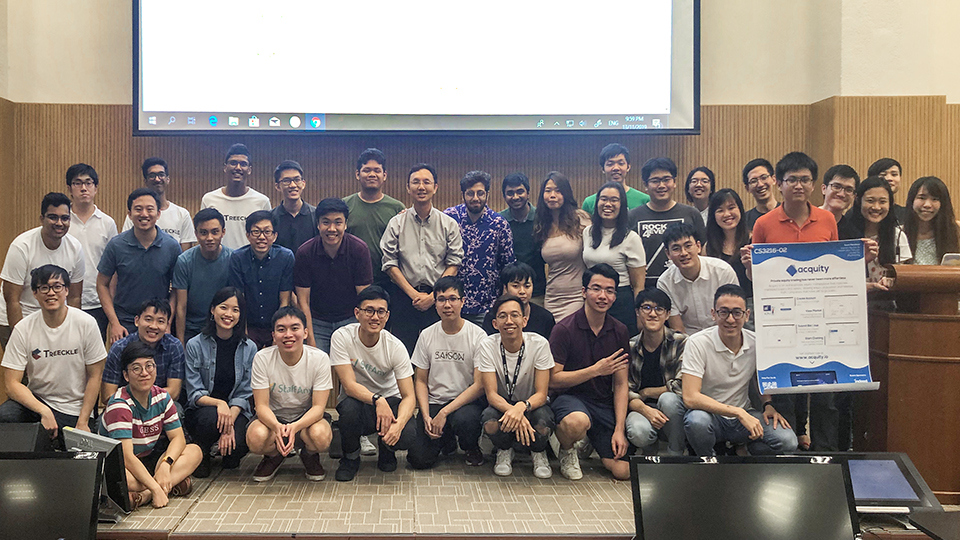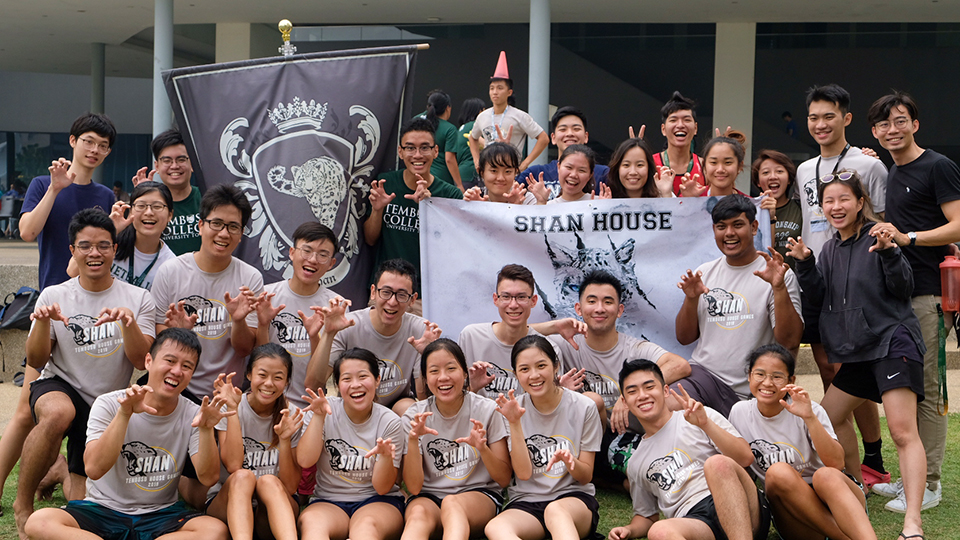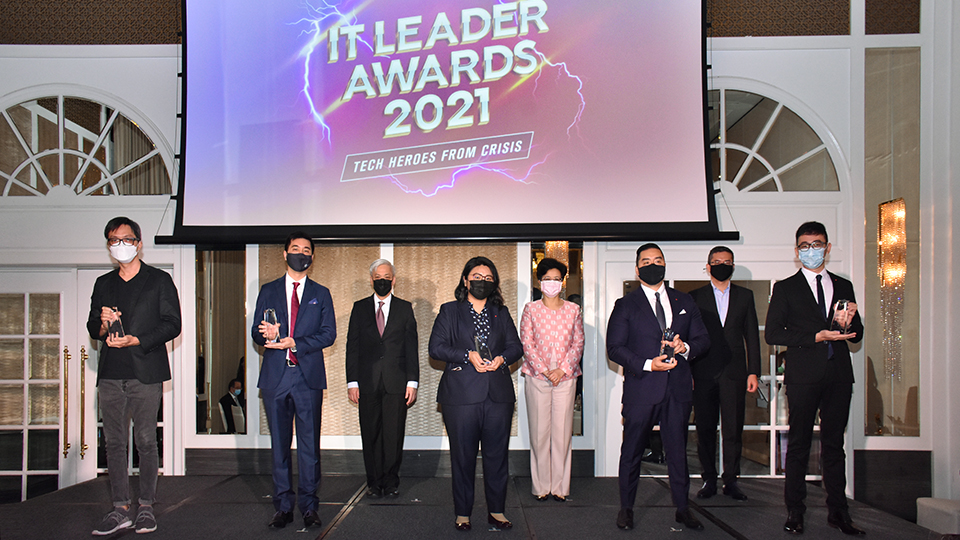Zhu Hanming, 23, is the co-founder of Joni.AI, an education technology app which uses adaptive learning to teach math concepts.
The irony is that Hanming was not very focused on his own learning back in the day. In primary school, he would spend much of his time in the classroom daydreaming about making the lesson more fun.
He recalls, “When the iPhone first came out, I thought, wouldn’t it be cool if the lesson could be like a game? The class could complete tasks together, earn points and trade them with the teacher.”
At the time, he did not yet have the skills to bring this idea to life, but his imagination was undeterred.
“In junior college, I was doing my physics practice questions one day when I realised that it was actually quite easy to dissect the questions and pinpoint the concept you’re being tested on.”
Frustrated by the repetitive questions in his assessment books, he wondered: What if there was a way to identify the concepts students are weak on, and then customise questions based on their individual needs?
“So, you’ll never be doing questions that are too easy or too hard,” he explains.
As luck would have it, he met a few like-minded people after National Service, and they founded Joni.AI together. Since he had experience with design work, he served as the company’s first Creative Director and was responsible for the app’s look and feel.
However, he knew nothing about coding or programming – it was only after matriculating at the NUS School of Computing (SoC) that he would acquire the skills to make his vision a reality.
The Programming Methodology module quickly gave Hanming a foundational knowledge of coding. He also threw himself into the curriculum with such enthusiasm that he finished two years’ worth of modules in half the time.
The speed of his progress at school speaks to Hamming's diligence, but the Year 3 Computer Science (CS) student credits his professors for helping him along this journey.
“There is Associate Professor Aaron Tan, who is the most enthusiastic professor. It’s the energy he has. He loves teaching and he loves what he’s teaching. It’s quite infectious.”
Others, like Associate Professor Ben Leong and Senior Lecturer Leong Wai Kay, inspire Hanming with their sharpness, rigour, and ability to see problems from different perspectives.
 Hanming (first row, far right) with Assoc Prof Ben Leong and fellow course mates in the Software Product Engineering for Digital Markets module in 2019
Hanming (first row, far right) with Assoc Prof Ben Leong and fellow course mates in the Software Product Engineering for Digital Markets module in 2019
“Dr Leong Wai Kay’s Software Engineering on Modern Application Platforms module definitely shortened my life by a few years,” he jokes. “But it also prepared me well for my work later on.”
As a result of his packed schedule, Hanming has become something of a phantom on campus, but he credits the supportive atmosphere at Tembusu College where, he resides, for helping him feel connected to the community.
He recalls with a laugh, “Tembusu College is incredibly welcoming, it’s like a family. You can vanish for a few weeks and when you resurface, everyone will just welcome you like it’s not a big deal and they were waiting for you to come back.”
 Hanming (second row, fourth from left) with his peers from Tembusu Shan House
Hanming (second row, fourth from left) with his peers from Tembusu Shan House
There, Hanming also found opportunities to learn about subjects beyond computing – he cites Biomedicine and Singapore Society as one of his favourite non-CS modules. He also regularly attends Tembusu’s many panels and talks featuring external speakers.
“I think my favourite one was on COVID-19,” he recalls. “They invited personnel from the National Centre for Infectious Diseases, an economics professor from Nanyang Technological University, and an expert on globalisation. It’s really interesting to see these people in different positions of authority approach the problem with different perspectives.”
Ever the voracious learner, Hanming believes his most valuable learning experiences at NUS are those that take place beyond the classroom. In addition to the intellectually challenging modules, he points out that the opportunity to work on real-world projects is what sets NUS SoC apart.
For him, this opportunity came in the form of Computing for Voluntary Welfare Organisations (CVWO), an initiative which encourages NUS students to use their programming know-how to develop projects that serve society.
Through CVWO, Hanming spearheaded his most impactful project thus far – a COVID-19 contact tracing application that helped to track the pandemic in Singapore in 2020.
“The authorities were seeking ideas to scale up contact tracing then and Associate Professor Ben Leong was approached for his expertise,” he recalls.
Hanming saw it as a life-changing opportunity and relished the impact that he could make through participating in the project.
To simplify the laborious process of gathering and consolidating data for contact tracing and issuing quarantine orders, automation was key. That’s where the NUS team played an important role, by building a platform that could sort all this critical data automatically.
With a single click, a contact tracer can view all the important information on a single page, in a graphical format that is both easy to understand and use.
“So instead of manually searching through the many different records and populating spreadsheets, they can just press one button to map out the patient’s activity,” Hanming explains.
Automating the process made things much more efficient. Before long, it would be used to trace tens of thousands of cases. And as the virus evolved to pose novel threats like reinfection, Hanming and his teammates began to develop updates at a record pace, often rolling them out in the wee hours of the morning.
It was exhausting, but the team's hard work culminated in recognition at the Singapore Computer Society IT Leader Awards in 2021. Hanming also learnt a great deal in the process – especially from his senior in the team, Lee Sing Jie, who led the project in its initial phase.
 Hanming (far right) and his teammates were recognised at the IT Leader Awards 2021 for their work on the COVID-19 Contact Tracing Application
Hanming (far right) and his teammates were recognised at the IT Leader Awards 2021 for their work on the COVID-19 Contact Tracing Application
“He was managing the stakeholders, reviewing massive amounts of code and, at the same time, pushing out code like crazy,” Hanming recounts admiringly of Sing Jie, who is an NUS Computer Engineering graduate.
Inspired by the experience, Hanming embarked on an internship at Facebook in 2021. Working as an intern in the software engineering team of a famous tech giant may prove daunting to many, but Hanming felt well-prepared from his classes at SoC.
“Coding is not the difficult part. Rather, it’s making the right design choices,” he says. “Dr Leong Wai Kay’s module was really helpful because we had to explain and justify our decisions on our group project to him. And because he’s very sharp, he will ask you many questions and you’ll need to convince him why you’ve made the best decision.”
Today, Hanming is already working on his final year project and remains involved with Joni.AI, where he now leads app development.
After graduation, he intends to gain some experience as a Software Engineer at Meta, the parent organisation of Facebook, Instagram, and WhatsApp, in Menlo Park, California, USA, before returning to work on his passion – Joni.AI and other education apps.
“I want to see how things are done in a big company, then do something to help the community or the country.”
On the surface, Hanming’s undergraduate journey seems to mirror the tech industry’s relentless, breakneck pace. However, he posits that having purpose is critical and advises his juniors to uncover what makes them tick, instead of mindlessly going through the grind.
“There may not be a need to rush into things. Once you figure out what you enjoy doing, things will come together.”